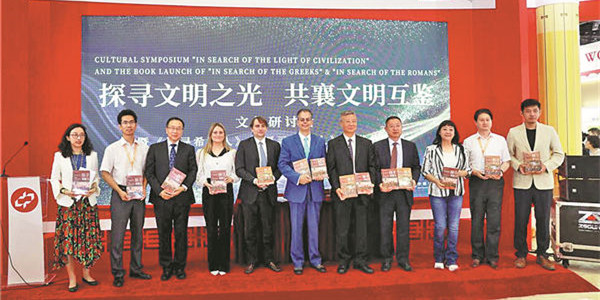

The 29th Beijing International Book Fair closed on June 18 at the China National Convention Center.
The five-day book fair provided a platform for the meeting and communication of more than 1,500 publishers from 56 countries and regions, including more than 900 overseas publishers, and over 1,000 events for public audiences. Visits to the book fair reached more than 200,000.
Statistics show that trades or future cooperation agreements were made for 2,000 copyrights.
The China Translation and Publishing House affiliated with the China Publishing Group signed a copyright trade agreement with Springer Nature to publish the English version of China's Economic Reform Process by economist Wu Jinglian.
The book analyzes the causes and consequences of China's economic reform and development paths from the perspective of changes in economic policy, presenting a full picture of the economic reform in the country. It also presents the long-standing contradictions and conflicts between the market economy and planned economy in the process of economic reform, as well as the major risks posed by suspensions of marketization and legal reform to China's economic and social development.
The translation work will be completed at the end of June, says Qiao Weibing, editor-in-chief of the China Translation and Publishing House.
As a book that displays Wu's profound thinking and thorough analysis of the country's economic reform process, the English translation will let more readers around the world better understand the process of China's economic reform, he says.
The book is among the translation projects of the first phase of the publisher's program, Translations of Contemporary Chinese Economists, launched in 2020. Others include Huobi Lun (The Theory of Monetary Economics) by Lu Lei, deputy head of the State Administration of Foreign Exchange, and The New Civilization Upon Data by big data expert Tu Zipei, the English version of which was published last July.